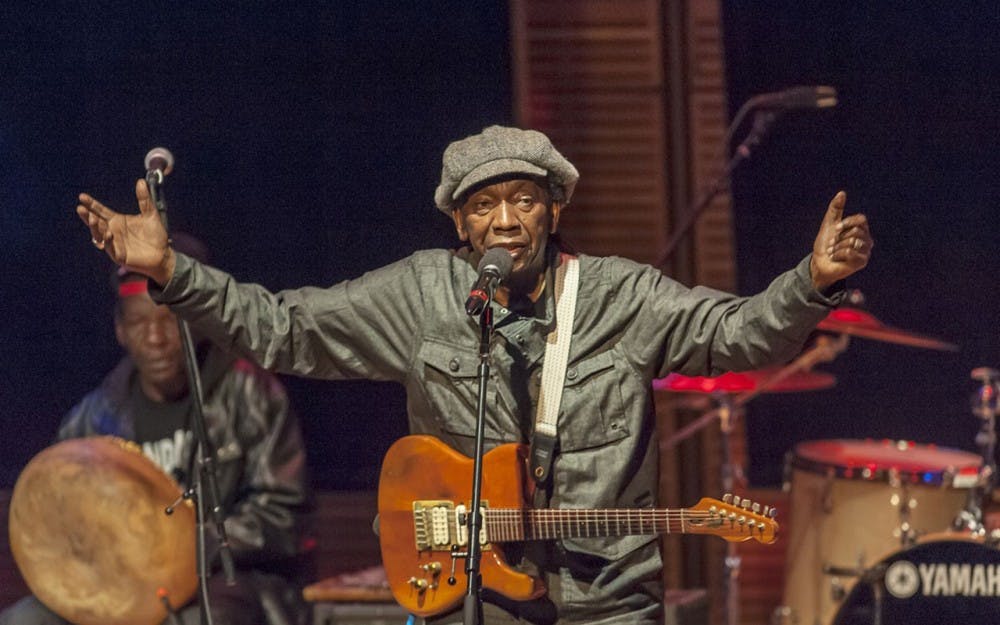Zimbabwean political revolutionary and world music star Thomas Mapfumo started his career playing Elvis Presley covers. He then inspired the people of Rhodesia, modern day Zimbabwe, to overthrow their British colonizers in the 1960s and 1970s.
Mapfumo is set to take the stage Thursday as a part of IU’s First Thursdays festival. He, along with University of California-Santa Barbara professor Mhoze Chikowero, will also be speaking at a lecture, titled “Chimurenga Intersections: Epistemologies of Self-Liberation through African Music Scholarship and Performance.”
The lecture will take place at 5:30 p.m. Wednesday in room 1122 of the School of Global and International Studies Building. The concert will start at 6:30 p.m. Thursday at the Wells-Metz Theatre.
The talk will discuss Chimurenga as a cultural movement, highlighting it as a philosophy in self-liberation, according to the abstract from the event’s flyer.
Associate professor in the Department of Folklore and Ethnomusicology Daniel Reed said it’s wonderful to have the opportunity to invite Mapfumo to campus.
“He’s had a really important role in what has been a very important political revolution in his country of Zimbabwe,” Reed said.
Mapfumo helped pioneer Chimurenga music, which combines traditional mbira style, used in African spiritual ceremonies, with Western pop.
“He took this important religious, ceremonial music and found a way to put it on guitar, bass, drums and keyboard,” associate professor in the Department of Folklore and Ethnomusicology David McDonald said. “It was modern and traditional at the same time.”
Chimurenga is the Shona term for “struggle,” which was also the name applied to the revolution Mapfumo and others inspired in the ‘60s and ‘70s. Reed said Chimurenga music instilled pride in being Zimbabwean and African.
“That popular music style was very instrumental in the overthrow of the government,” Reed said.
McDonald said Mapfumo’s music also created a strong sense of national identity.
“His music was one of the things that brought people together to figure out what it meant to be Zimbabwean,” McDonald said. “His music basically created a musical image of Zimbabwe before Zimbabwe existed.”
He sung nationalist poetry over top of these songs, which became the rallying cry for the resistance, McDonald said.
Mapfumo became a world music star following the revolution because of the popularity of his style. His western-African form of Chimurenga created a brand of music world audiences could enjoy, Reed said.
“This music was based in a really long standing musical, religious tradition,” Reed said. “It’s really hypnotic and joyous music, that when you hear it, you can’t sit still, you want to dance.”
Mapfumo is a great case study on how traditonal music can be modernized and put into pop music format, McDonald said.
“Expect amazing dance music,” McDonald said. “A lot of fun, great South African pop music.”
Reed said Mapfumo’s music bridges the gaps between contrasting cultures, about 50 years after he first brought pop and mbira together.
“The study of music is a way in which we can better understand and transcend the difference between cultures and different kinds of people in the world,” Reed said. “To bring a major act from Africa here, to expose the people of Bloomington to that alone is a value.”






